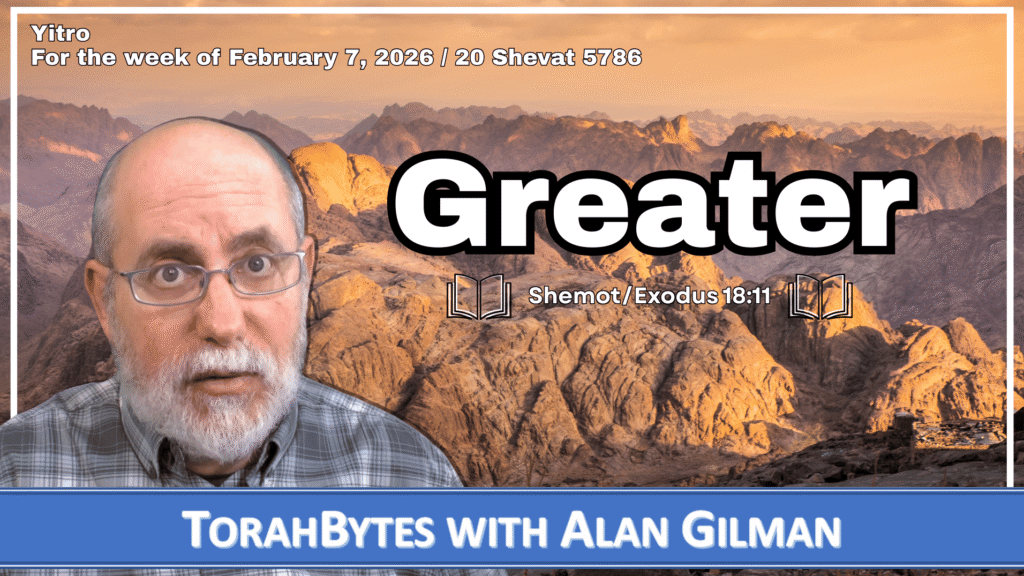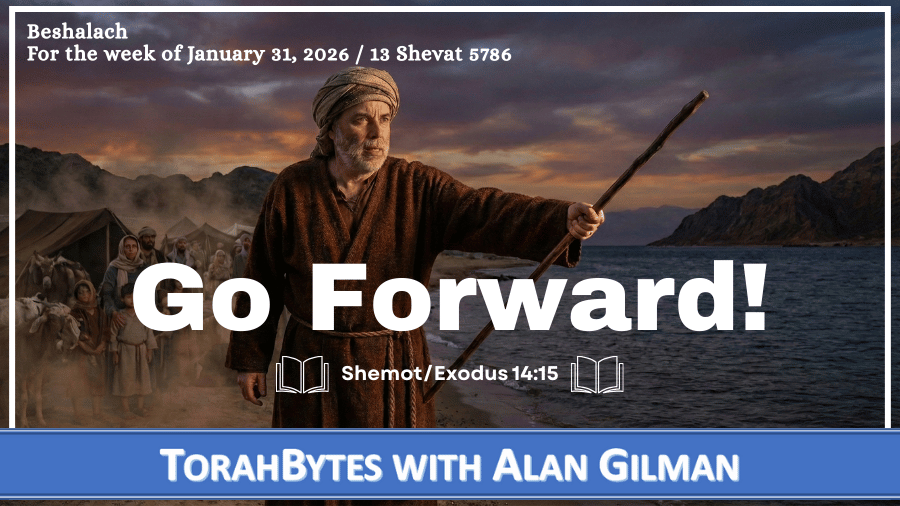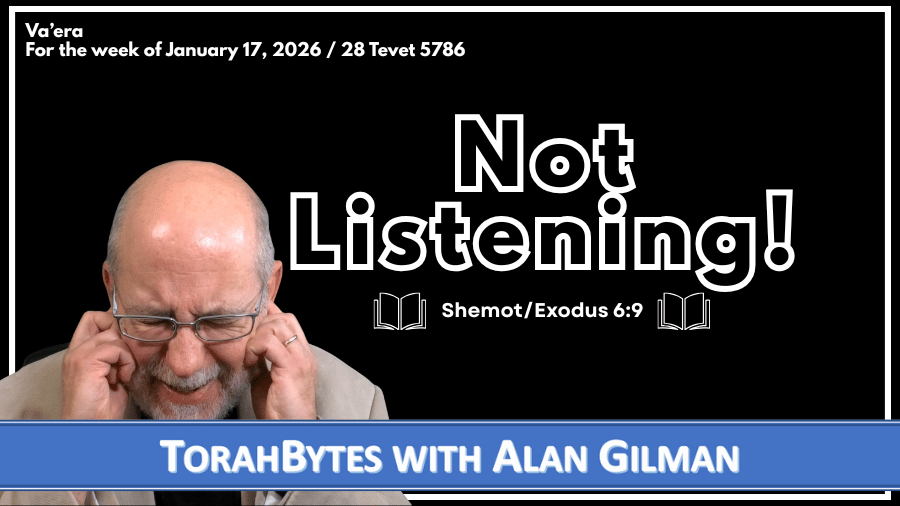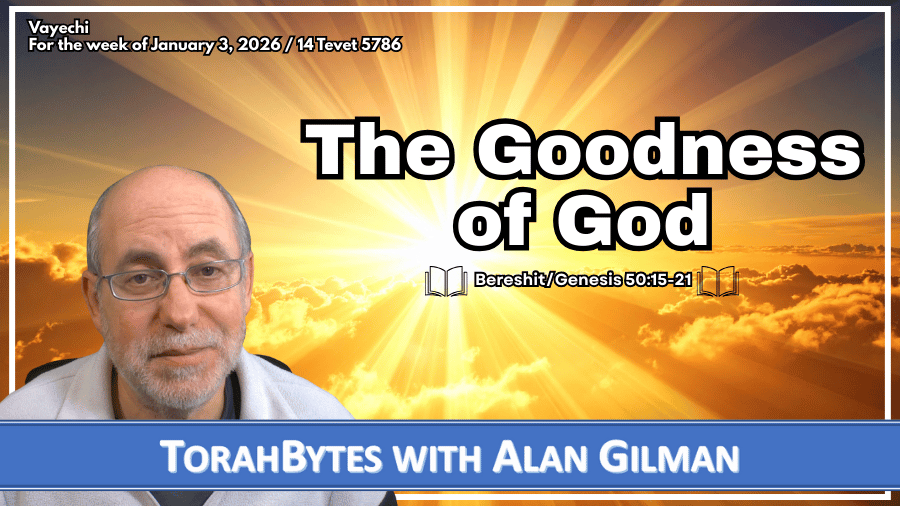For the week of March 7, 2026 / 18 Adar 5786
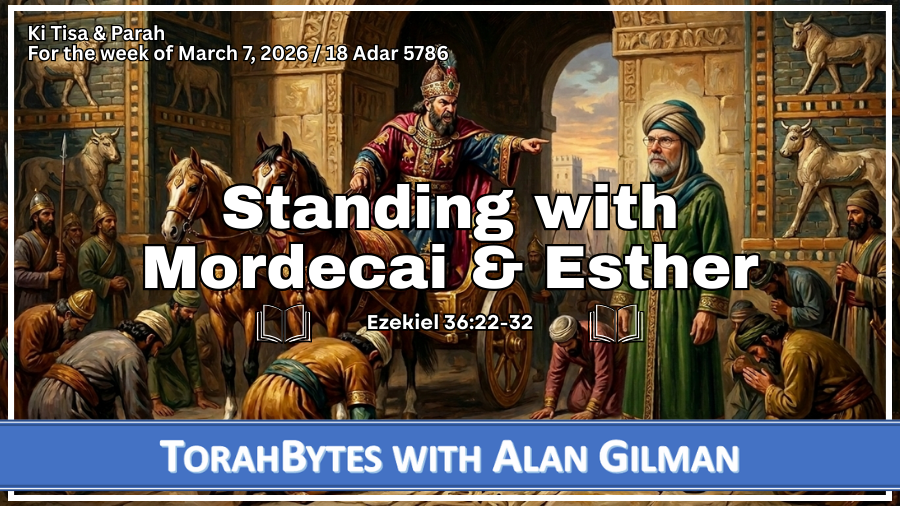
Click image to view video version
Ki Tisa & Parah
Shemot/Exodus 30:11 – 34:35; B’midbar/Numbers 19:1–22
Haftarah: Ezekiel 36:16–38
And I will give you a new heart, and a new spirit I will put within you. And I will remove the heart of stone from your flesh and give you a heart of flesh. (Ezekiel 36:26)
This week’s haftarah (reading from the Hebrew prophets) is special because this coming Shabbat follows Purim (the Festival of Esther). Purim, which this year occurs on Tuesday, March 3, commemorates the rise of Queen Esther, who was willing to risk her life to save her people from extermination. It’s the most joyous of all Jewish holidays.
Purim reminds us of our God-given responsibility to speak up in the face of evil. And yet evil’s power, be it in Esther’s day or our own, can often intimidate us into silence. What difference can one person make, especially if that person is me? And yet, like Esther, we may find ourselves in the right place at the right time. We never know when God may choose us to take a stand against evil, not just for our own sake, but for purposes far greater than ourselves.
I believe we are living in a time when evil has become so widespread that the responsibility to speak the truth falls on anyone who possesses it. This evil has taken many forms, which I will not take the time to list here. But as someone who treasures the Scriptures, as many of my audience do, at the core of it all is the spirit of Haman from the Purim story. It’s the misrepresentation and misguided treatment of the Jewish people, commonly called antisemitism. Tragically, antisemitism is too often naively and not-so-naively displayed by those who, while claiming allegiance to the Jewish Messiah, adhere to what has been called Replacement (or Fulfillment) Theology, also known as Supersessionism — the idea that God’s promises to ancient Israel are either transferred to or fulfilled by the Church.
When producing TorahBytes, I always begin with a fairly short Scripture as I did here. But to make my point more effective this week, I am providing a wider context. Here is Ezekiel 36:22-32:
Therefore say to the house of Israel, Thus says the Lord GOD: It is not for your sake, O house of Israel, that I am about to act, but for the sake of my holy name, which you have profaned among the nations to which you came. And I will vindicate the holiness of my great name, which has been profaned among the nations, and which you have profaned among them. And the nations will know that I am the LORD, declares the Lord GOD, when through you I vindicate my holiness before their eyes. I will take you from the nations and gather you from all the countries and bring you into your own land. I will sprinkle clean water on you, and you shall be clean from all your uncleannesses, and from all your idols I will cleanse you. And I will give you a new heart, and a new spirit I will put within you. And I will remove the heart of stone from your flesh and give you a heart of flesh. And I will put my Spirit within you, and cause you to walk in my statutes and be careful to obey my rules. You shall dwell in the land that I gave to your fathers, and you shall be my people, and I will be your God. And I will deliver you from all your uncleannesses. And I will summon the grain and make it abundant and lay no famine upon you. I will make the fruit of the tree and the increase of the field abundant, that you may never again suffer the disgrace of famine among the nations. Then you will remember your evil ways, and your deeds that were not good, and you will loathe yourselves for your iniquities and your abominations. It is not for your sake that I will act, declares the Lord GOD; let that be known to you. Be ashamed and confounded for your ways, O house of Israel (Ezekiel 36:22-32).
If the case against Supersessionism isn’t clear enough by my simply providing this passage, let me emphasize the following:
First, the Israel he is speaking to is whom we would call the Jewish people today, those in Ezekiel’s time, who, years earlier, had been scattered by the Assyrians and then exiled by the Babylonians.
Second, God’s own reputation is at stake here. Note his actions are not based on the people’s response, but upon his work among and within them.
Third, Israel’s return to both God and our ancient homeland is part of God’s restoration of his ancient covenant people.
And let’s also include verse thirty-six: “Then the nations that are left all around you shall know that I am the Lord; I have rebuilt the ruined places and replanted that which was desolate. I am the Lord; I have spoken, and I will do it.” God’s work among and within the people of Israel will have a great impact on the surrounding nations.
Obviously, there is so much here to unpack, but for now, let me say this: according to Ezekiel, the people who will experience the spiritual and physical renewal are the wayward people of Israel. Any transference of these promises to anyone else, any subtle or not-so-subtle interpretive twist that undermines what God is saying, any theological sleight of hand that suggests that God did not or does not mean what he says, not only robs the Jewish people of our God-given inheritance, but misrepresents the God of Israel himself, which is blasphemy.
The circumstances of Purim began when Esther’s cousin Mordecai would not bow to the Amalekite Haman, whose self-interest influenced the political powers in an attempt to destroy God’s chosen people. On this Purim, I call upon each and every person who values the Scriptures of the God of Israel to stand with the people of Israel against this same evil spirit that sought to destroy us centuries ago. Stand with the God of Israel by standing with the people of Israel, so that his promises through Ezekiel may be fulfilled sooner than later.
Scriptures taken from the English Standard Version



